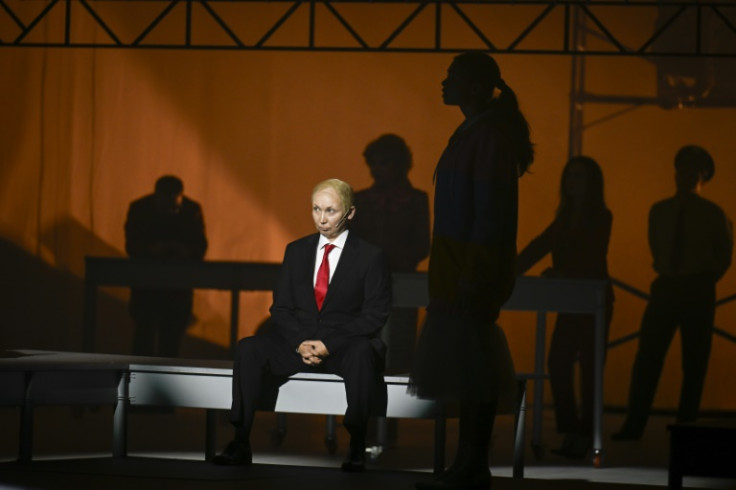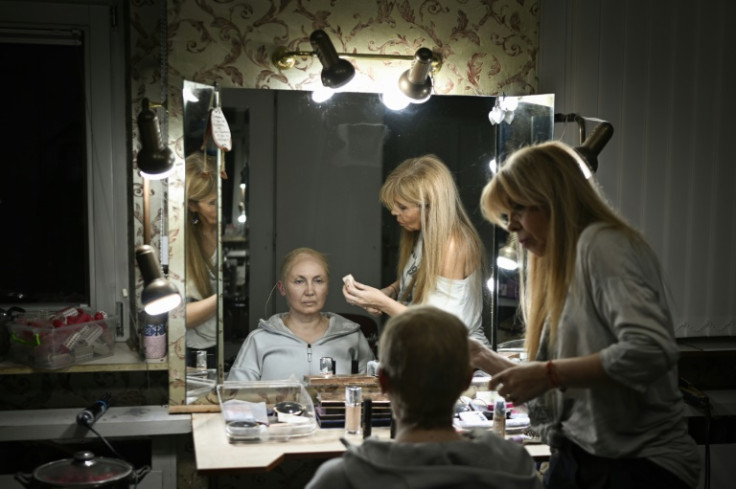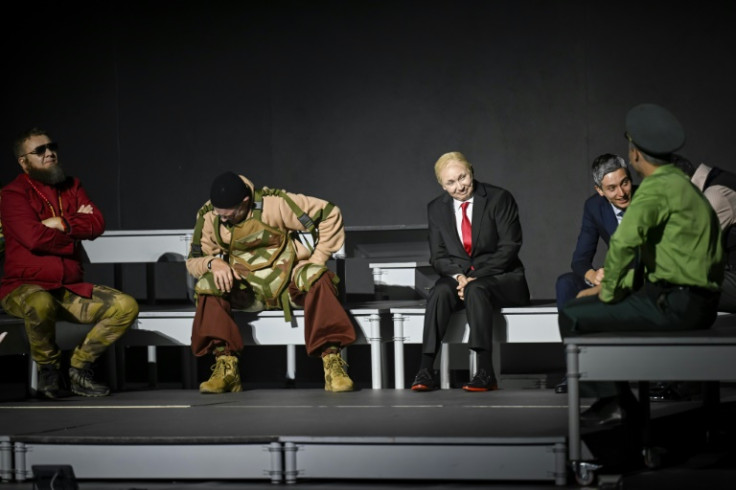
A highly acclaimed satirical play about President Vladimir Putin and his allies facing a war crimes tribunal is making waves in Bulgaria, a country historically close to Russia.
Titled "The Hague", the play by Ukrainian author Sasha Denisova recounts the story of an orphaned teenager from Mariupol who imagines how Russia's top brass is brought to justice over its devastating war in Ukraine.
After premiering in Poland and the United States earlier this year, celebrated guest director Galin Stoev adapted the play for a Bulgarian audience, seeking to challenge the Balkan country's pro-Kremlin sentiment.
In the drama currently staged at Sofia's National Theatre, Putin is portrayed by a woman -- Bulgarian actor Radena Valkanova -- donning a sleek black suit and red shoes.
"If we can't watch the Hague trial in real life, let's watch it in the theatre," Denisova said of the scene she penned before the International Criminal Court issued an arrest warrant for Putin over the alleged unlawful deportation of Ukrainian children.
In the same way as Charlie Chaplin mocked Nazi leader Adolf Hitler on screen, "Putin must be laughed at without mercy," she told AFP, stressing the power of satire.
Historically close to Russia, EU and NATO member Bulgaria still has many citizens nostalgic for what they see as the glory days of the Russian empire and the Soviet Union.
The nostalgia also refers to Russia as a protector for the Slavic people of Bulgaria from Ottoman rule.
Studies suggesting that 30 percent of Bulgarians are pro-Putin -- despite Moscow's relentless war on Ukraine -- encouraged Stoev in his determination to stage an "eye-opening" adaptation of the play in Sofia.
And he seems to have hit a mark.
"The audience is deeply moved and asks questions," Stoev told AFP, after the actors received another round of standing ovations from the crowd.
But the main challenge lies in constantly updating the script to reflect the current state of the war.
Yulian Vergov -- who plays Russian Wagner mercenary chief Yevgeny Prigozhin -- said working with a changing script was challenging, as both the aborted mutiny and Prigozhin's death in a plane crash had to be "newly added" while leaving his fate in doubt.
"The play is fiction, but after all you play a real character, who then dies during rehearsals -- this is impressive," Vergov said.
The troupe also has to stay on top of the latest rumours about the state of health of Chechen strongman Ramzan Kadyrov and the Russian president.
Amid all the accolades, detractors have criticised the play as a "biased propaganda vaudeville", with one actor reportedly declining a role for ideological reasons.
"With this show, we're inviting spectators to reflect on real events" and draw their own conclusions, theatre director Vasil Vasilev countered.
"Politicisation is just the opposite: when we're told what to think and do."
Putin impersonator Valkanova said she was glad the play has sparked "very polarised opinions", deeming them "the purpose of this type of theatre".
"I am happy that there is something like this to wake up people's thinking -- something that we lack as a nation."
After a stopover in the French city of Toulouse, where Stoev heads the national drama centre, he hopes to stage the play in the Bulgarian countryside, known to be susceptible to pro-Russian sentiment.









